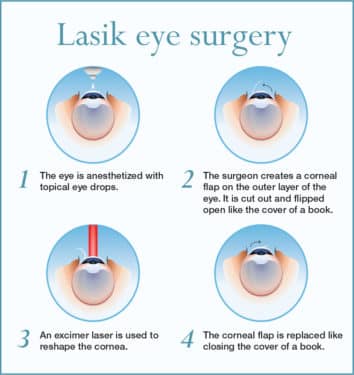How To Assistance A Family Member Dealing With Cataract Surgery: A Caretaker'S Perspective
How To Assistance A Family Member Dealing With Cataract Surgery: A Caretaker'S Perspective
Blog Article
Material Writer-Leonard Crosby
As a caretaker sustaining a loved one encountering cataract surgery, your duty is important in ensuring their comfort and recovery. From pre-surgery prep work to post-operative treatment, your presence and support can make a substantial distinction in their journey. Comprehending the emotional and physical obstacles they may encounter, offering functional help, and being their column of support are key elements in this process. Remember, your function goes beyond simply supplying support; it's about being a source of strength and convenience during a significant stage in their life.
Understanding Cataract Surgery Process
Exploring the actions associated with cataract surgical treatment can aid alleviate any type of stress and anxiety or uncertainty you might have about the treatment. Cataract surgery is an usual and highly effective treatment that entails eliminating the cloudy lens in your eye and replacing it with a clear man-made lens.
Before the surgical procedure, your eye will certainly be numbed with eye declines or an injection to ensure you don't really feel any pain during the treatment. The surgeon will make a little laceration in your eye to access the cataract and break it up making use of ultrasound waves prior to meticulously removing it.
When the cataract is removed, the synthetic lens will be placed in its place. The whole surgical procedure normally takes around 15-30 minutes per eye and is generally done one eye at a time.
After the surgical treatment, you might experience some mild pain or blurred vision, but this is typical and must enhance as your eye heals.
Readying for Surgery With Each Other
To guarantee a smooth and worry-free experience, preparing for cataract surgical procedure together can make a substantial difference in your liked one's journey. Beginning by going to pre-surgery appointments with them. This way, you can ask concerns, understand the procedure, and offer emotional support.
Help them organize their pre-operative instructions, drugs, and transport to and from the medical facility. Ensure their home awaits their healing by setting up a comfortable area with easy accessibility to crucial items.
Aid cataract surgery in your 50s in scheduling post-operative treatment if needed, such as assist with meals or household tasks. Urge them to adhere to the physician's suggestions concerning fasting prior to surgical procedure and drug procedures.
Assure them that you'll be there for them every step of the way. By proactively taking part in the preparation procedure, you can reduce anxiety and make certain that your liked one feels sustained and taken care of during this crucial time.
Post-Operative Treatment Tips
After cataract surgery, giving proper post-operative treatment is essential for your enjoyed one's recuperation. Ensure they use the protective guard over their eye as instructed by the medical professional. Help them provide prescribed eye decreases and medicines on time to avoid infection and aid healing.
Encourage cataract surgery laser vs traditional loved one to stay clear of touching or massaging their eyes, as this can lead to problems. Aid them in adhering to any kind of restrictions on flexing, lifting hefty objects, or joining laborious tasks to prevent strain on the eyes. Make sure they attend all follow-up consultations with the eye medical professional for checking development.
Maintain the eye area clean and completely dry, staying clear of water or soap directly in the eyes. Motivate your liked one to use sunglasses to shield their eyes from bright light and glow during the healing procedure. Hold your horses and helpful as they recoup, using support with daily jobs as required.
Final thought
Finally, sustaining an enjoyed one via cataract surgical procedure entails being there every action of the way, from pre-surgery prep work to post-operative treatment. Your emotional support, practical help, and inspiration can make a significant difference in their healing process. By staying notified, arranged, and mindful to their needs, you can help make certain a successful outcome and give them with the comfort and confidence they need throughout this tough time.
